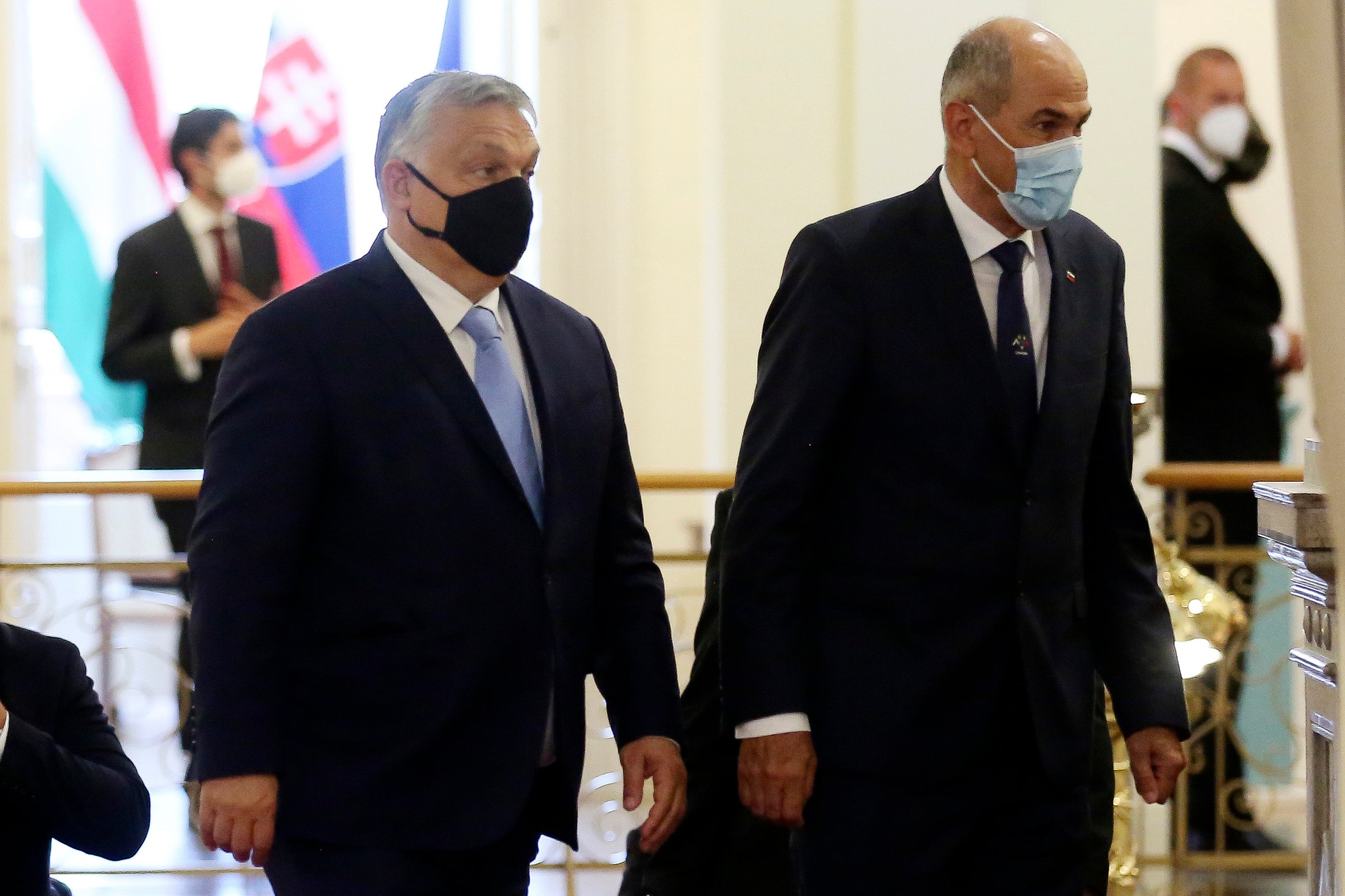Central European leaders worry over Afghan migration 'wave'
Central European leaders are voicing concern over what they say is a potential migration rush from Afghanistan in the wake of U.S. and NATO withdrawal

Central European leaders on Friday voiced concern over what they said was a potential migration rush from Afghanistan as U.S. and NATO forces pull out from that country. They also complained that a small group of powerful countries within the European Union continue to call the shots without input from smaller or less wealthy member states.
Poland’s Prime Minister Mateusz Morawiecki Morawiecki said a NATO troop withdrawal from Afghanistan could trigger a migration influx into Europe, on top of a steady stream of migrant arrivals from Africa.
Czech Prime Minister Andrej Babis took it a step further to suggest that a “migration wave” from Afghanistan constitutes a “big threat.”
“For that reason we must be capable of protecting our external borders,” Morawiecki said.
The prime ministers of the Czech Republic, Poland Hungary and Slovakia - all EU and NATO members - gathered in Slovenia on Friday, just days after the Alpine Nations took over the EU's rotating presidency. The countries make up the so-called Visegrad Group, an informal body that aims at closer regional cooperation.
Most Central and Eastern European countries have in the past opposed allowing into Europe people fleeing war and poverty from the Middle East, Africa or Asia.
Hungary erected a fence on its southern border with Serbia following a massive influx of migrants in 2016 that saw a million people reach Western Europe.
Hungary’s Prime Minister Viktor Orban on Friday urged Central European countries to stick together on the issue of migration so that their voice is heard within the 27-member bloc.
“Cooperation between Central Europe countries is not a theory but a practical reality,” Orban said.
Orban and Slovenia’s right-wing Prime Minister Janez Jansa are close allies. Jansa has also recently faced EU scrutiny over concerns that his government has been curbing media and democratic freedoms in the traditionally liberal country.
Central European countries have been critical of EU migration policies have have accused the bloc of fostering inequality among its members that diminishes their influence.
The Populist governments of Hungary and Poland have openly clashed with Brussels over a number of issues including the rule of law and LGBT rights.
At a joint press conference after the meeting, the officials praised their cooperation and pledged to support Slovenia's six-month tenure at the EU's helm.
Morawiecki complained that Central European countries feel that they're “only pawns on some European chess board.”
“This is why our voice in the discussion about Europe’s future …. must be very loud,” he said. “We are against centralism ... we are for a strong role of sovereign states that cooperate very closely together in the economy."
Ahead of the gathering, Slovenia’s LGBT groups demanded that Jansa publicly condemn both Poland and Hungary over policies that they say stifles LGBT rights, the STA news agency reported.
Hungary recently passed law that prohibits the display of content depicting homosexuality or sex reassignment to minors, and which activist say stigmatizes the LGBT community in the country.
EU leaders have strongly condemned the law.
Bookmark popover
Removed from bookmarks